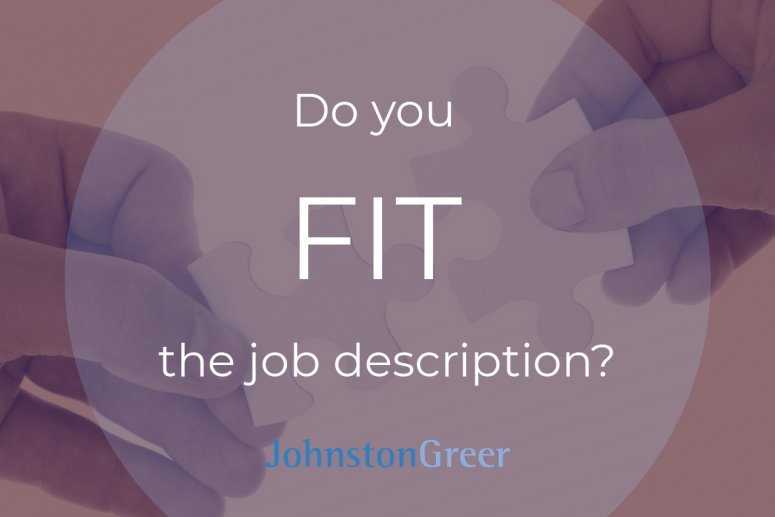
It may seem like a straightforward task and easy to comprehend but looking out for keywords within the job advert will help you prioritise and save time by applying to roles that are a genuine fit for you, whilst avoiding some disappointment along the way.
If it is a fit for you and the keywords are applicable, you can tailor your application to the job and align it with the expectations, showing you can offer deliverable results.
Are you a match?
Firstly, don’t be discouraged by the often-lengthy paragraphs detailing the list of responsibilities and qualities needed to fill the role. Companies generally focus on the main duties to be filled at the beginning of the advert and if you have experience of completing them before, then you’re already off to a good start. No one person will be able to tick off every single bullet point of requirement, but if you meet at least 60% then your likely in with a chance of consideration.
Do you fit the job description?
Read the description and be ruthless with yourself when determining whether it applies to you.
The title: Are you in this role now or have been previously?
The title is a clear indication of what they’re looking for. In financial services, relevant experience is usually always required.
Qualifications: Does the job advert list any necessary qualifications? If so, do you have them? Are you working towards them?
Most jobs within financial services will require a qualification or degree and are unlikely to consider you if you don’t have them. In some cases, the advert will read, ‘qualifications an advantage but not essential’, in this case, consider whether you genuinely have relatable experience.
Does it mention an experience level? If so, do you meet this?
If you hand in your CV and you’re a year short of experience, you won’t be considered in favour of stronger candidates. Although you may believe you could manage the listed tasks, if ‘X’ number of years experienced is required then it is very unlikely they will look at candidates without.
Responsibilities: Do you understand the responsibilities in the task?
Some companies use overly complicated jargon to describe routine tasks, but if you find yourself reading the responsibilities and not understanding or being able to relate to it, then you probably won’t be qualified for the role. But if you read through and your experienced or understand at least 60% then you can consider yourself a match for the requirements.
Salary: Is the salary in a similar pay bracket to your current or is it a logical increase?
Salary is usually a good indicator of whether you’re experienced for the role or if it is a logical progression. If the salary is wildly out with your current salary, they’re probably looking for someone with more experience.
Keywords to consider: Some of the common phrases used can help you identify whether you will be comfortable with the tasks expected, such as multi-tasking: can you manage and prioritise various tasks in busy periods and complete them confidently and timely?
Great communication skills: Are you comfortable putting yourself out there and communicating with different people? If it isn’t something, you’re comfortable with, then don’t apply for a job that requires it.
If after, using the tick list above, you are a fit, use the keywords from the advert throughout your CV/Cover Letter. Recruiters will be looking for these keywords in the 7 seconds it takes them to read a CV and you want to give yourself the best opportunity.
Ultimately, using a recruitment agency can help you identify suitable roles. The consultant will know exactly what is wanted from the client for the position and can advise you if you don’t meet this. Another benefit, if you don’t meet the specifications for one role, they have a vast market knowledge and relationships to help direct you and apply for one that does fit!
